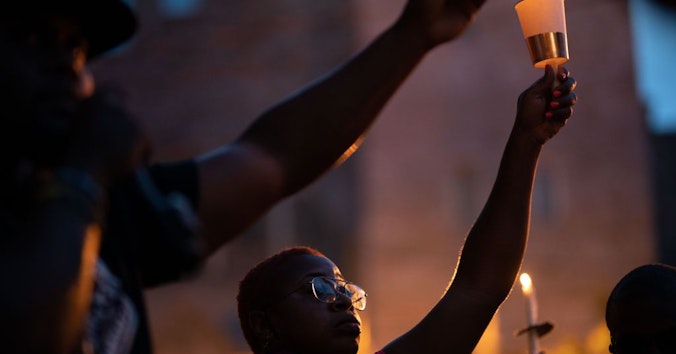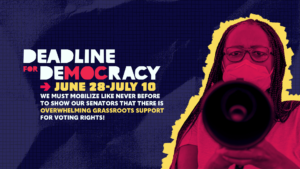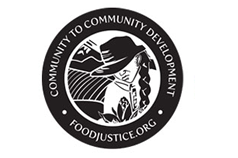JUUstWA Signs on Faith letter to Congress asking for passage of the Afghan Adjustment Act
On July 20, 2023, JUUstWA Board members agreed to become signers on a letter to Congress to pass the Afghan Adjustment Act, legislation that would follow through on our commitment to Afghan people who support the U.S. during our activity there. Many loyal Afghan people were left behind in the withdrawal in 2021 and those that were brought to the United States did not received the resources and services needed to establish life here in the United States. Draft letter is below.
Dear Members of Congress,
As 108 religious leaders and 61 national, state, and local faith-based organizations representing many faith traditions, we urge you to support and work to immediately pass the bipartisan Afghan Adjustment Act of 2023 (S. 2327 / H.R. 4627). If passed, the bill would provide a clear path to permanent status for Afghans living in the U.S. and expand pathways to protection for vulnerable Afghans left behind. On July 13th, the Afghan Adjustment Act was introduced as an amendment to the National Defense Authorization Act (NDAA). We strongly encourage your support of this crucial measure and its inclusion in the NDAA to provide stability and safety to tens of thousands of Afghans, many of whom risked their lives in service of the U.S. mission.
As communities of faith, we are called by our principles and sacred texts to the spiritual practice of welcome. Our congregations have historically played key roles in meeting the needs of displaced people, a tradition that has come to include supporting Afghans who have fled from the violence and persecution of the Taliban. For nearly two years, congregations and organizations have mobilized to connect Afghans with housing, language services, employment, transportation, and social support as they rebuild their lives in the U.S. However, Afghans who have become integral to our communities will continue to face significant obstacles until Congress demonstrates moral leadership by passing the Afghan Adjustment Act.
As we approach two years after the fall of the elected Afghan government in August of 2021, the need for an attainable path to permanent status for Afghans living in the U.S. has never been more urgent. More than 76,000 at-risk Afghans have been welcomed into the United States via “humanitarian parole” which provides only temporary protection and no clear path to permanent residency. Though the vast majority of Afghan parolees are eligible for asylum or Special Immigrant Visas, due to long backlogs and processing delays, according to U.S. Citizenship and Immigration Services, fewer than 10% have secured permanent protection.
The Afghan Adjustment Act would provide stability and security to the thousands of Afghan evacuees who remain in legal limbo as their initial period of protection is set to expire this fall. The new pathway the bill creates would be cost-effective and secure, and there is significant precedent of Congress coming together to pass similar adjustment acts for others that have been evacuated to the U.S. under humanitarian parole.
As religious leaders, congregations and faith-based organizations, we join with a diverse range of supporters calling for the immediate passage of the Afghan Adjustment Act, including veterans, businesses, national security experts, and women’s rights leaders. Around the nation and across the political spectrum, a broad consensus has emerged: Congress must stand up for displaced Afghans and immediately pass the Afghan Adjustment Act.
Our nation’s diverse faith traditions call us to love our neighbor, accompany the vulnerable, and welcome the sojourner. We believe that it is a moral imperative to act swiftly to protect Afghans at risk. We look forward to working with you to ensure your support for the Afghan Adjustment Act as part of the National Defense Authorization Act.
Thank you for your attention to this urgent matter.
Sincerely,
Congregations & Faith-based Organizations
State Action is Crucial
On December 19, 2021, Senator Joe Manchin of West Virginia announced that he would not support the Build Back Better bill (BBBB), which contained a number of climate actions as well as social programs. The Biden Administration has worked with Senator Manchin and other legislators on compromises to make it possible to pass BBBB to no avail. As one of the Board Members of the UU Ministry for Earth, Doris Manchin, stated, "Joe Manchin announced that he will not support Build Back Better. Which only means that STRENGTHEN LOCAL CLIMATE COMMITMENTS (the work of cities and states and industry / sectors)" is even more important. If you are not already involved, please sign up here.
Environmental Priorities for 2022 Legislative Session
The Environmental Priorities Coalition, which includes environmental groups such as the Washington Environmental Council and the Sierra Club, and faith groups such as Faith Action Network, met recently to set priorities. A tentative list of 2023 priorities include salmon recovery, housing affordability and density, recycling, water, forests and land use. There are still issues pending from the 2022 session. The following is a list of top priorities for 2022, that may recur as bills in 2023:
Salmon Recovery (SB 5665)-- From the coast to Puget Sound to the Snake River, bold action to recover endangered salmon populations across the state.
Unfortunately, this bill is dead for the 2022 session because of landowner opposition. It may be revised and reintroduced at the 2023 session.
Fighting Sprawl to Protect Climate (HB 1099 and SB 5042) -- Futurewise-led Washington Can’t Wait campaign to pass two bills that will revise the Growth Management Act to better plan for climate and close development loopholes that exacerbate urban sprawl. SB 5042 has passed both the Senate and House and was signed by the governor but 1099 has not been forwarded to the Governor for signature. It will be reintroduced in 2023.
Clean Buildings (HB 1767 and SB5666) -- Buildings are WA’s fastest growing source of climate pollution. Action is planned to expand the availability of incentives for utility customers to switch from fossil fuels to clean electric appliances. Both bills failed to pass and may be reintroduced.
Hearings: January 14, 2022. House Environment and Energy Committee: Notes on the hearing are here. Also, on Feb. 17: Hearings in House Committee on Environment & Energy on SB 5722, a similar bill.
Buy Clean Buy Fair (HB 1103 and SB 5366)-- State investments should support manufacturers who utilize clean manufacturing practices and strong labor standards.
In addition, the following bill failed in 2022 but could be 2023 priorities:
Housing Equity and Proximity to Transit (HB 1782) – create additional middle housing near transit and in areas traditionally dedicated to single-family detached housing.
Hearings: January 18, 2022: House Committee on Local Government: Hearing Notes Here
Senate Committee on Housing & Local Government has approved the Senate companion bill SB 5670, but both bills missed the March 4 cutoff and are dead for the 2022 session but could be reintroduced in 2023.
Six Ways to Aid Afghan Refugees
 Today, the WA Immigrant Solidarity Network stands in complete solidarity with the Afghan people. We urge the Biden-Harris administration to live up to their promise of centering human rights in foreign policy and provide refuge to ALL refugees who seek safety.
What you can do:
Today, the WA Immigrant Solidarity Network stands in complete solidarity with the Afghan people. We urge the Biden-Harris administration to live up to their promise of centering human rights in foreign policy and provide refuge to ALL refugees who seek safety.
What you can do:
- Send a letter to your member of Congress demanding the Biden-Harris administration lift the cap on Afghan refugees immediately.
- Sign up to support Afghan refugees in Washington. Anything from clothing to housing, to mental health support is appreciated.
- Donate funds to support Afghan refugees in Washington. The Muslim Association of Puget Sound (MAPS) is fundraising to provide much-needed resources to refugees.
- If you live in the Seattle/Tacoma area, volunteer to support local Afghan refugees. Lutheran Community Services is recruiting volunteers for apartment set up, rides from the airport, and more.
- Sign this MoveOn petition. This petition calls on President Biden to lift the cap on Afghan refugees.
- Sign this petition and send another letter to Congress about lifting the cap on Afghan refugees, with a specific focus on wartime allies.
Call to Action: Show up for our siblings in Haiti & Afghanistan
The Church Council of Greater Seattle asks you to show up for our siblings in Haiti & Afghanistan
***CALL TO ACTION: Sign onto this letter and demand the Biden administration lift the cap on Afghan refugees NOW****
Links to Donate and Volunteer Here
 From climate change-fueled disasters to political violence, our siblings across the globe are in crisis. Find a few ways to lend concrete support to the safety and wellbeing of our siblings in Afghanistan and Haiti via the button below, two nations experiencing two very different yet equally world-shattering crises.
Our prayers and solidarity are with our human family the world over as we work together toward a safe, just future for us all.
From climate change-fueled disasters to political violence, our siblings across the globe are in crisis. Find a few ways to lend concrete support to the safety and wellbeing of our siblings in Afghanistan and Haiti via the button below, two nations experiencing two very different yet equally world-shattering crises.
Our prayers and solidarity are with our human family the world over as we work together toward a safe, just future for us all.
Tell US Senators to VOTE NO on HR 1374
 The Lakota People’s Law Project has put out a call to action to advocate against HR1374, the “Enhancing State Energy Security Planning and Emergency Preparedness Act of 2021” – a bill that has already passed in the House and is heading to the Senate. This bill would worsen the already dangerous and complex dynamics of state-backed and corporate-funded violence against and criminalization of water protectors.
More Information
The Lakota People’s Law Project has put out a call to action to advocate against HR1374, the “Enhancing State Energy Security Planning and Emergency Preparedness Act of 2021” – a bill that has already passed in the House and is heading to the Senate. This bill would worsen the already dangerous and complex dynamics of state-backed and corporate-funded violence against and criminalization of water protectors.
More Information
Good Trouble: John Lewis Democracy Vigils, Saturday, July 17th, 2021 (Various Locations/Times)
 Join us for The Good Trouble Vigils for Democracy on July 17 - the one year mark of the passing of Rep. John Lewis - as we carry on his legacy by hosting candlelight vigils nationwide to demand that Congress act to protect our freedom to vote and rebuild our democracy.
Join us for The Good Trouble Vigils for Democracy on July 17 - the one year mark of the passing of Rep. John Lewis - as we carry on his legacy by hosting candlelight vigils nationwide to demand that Congress act to protect our freedom to vote and rebuild our democracy.
Deadline for Democracy: June 28 - July 10, Pressure Congress for Voting Equity

 Yesterday, we launched our big plan for the upcoming congressional recess from June 28 - July 10: Deadline for Democracy. And now we’ve got just a few weeks to plan hundreds of events, drive thousands of signups, and get everything ready to put pressure on all 100 senators for real democracy reform.
A red and blue graphic. On the right is a woman wearing a medical mask and speaking into a megaphone. On the left it says "Deadline for Democracy June 28 - July 10 We must mobilize like never before to show our Senators that there is overwhelming grassroots support for voting rights!"
If you missed yesterday’s email with all the details, read on below for the rundown of what we’re planning for this crucial recess. If you’re ready to support us right now, click here to donate $10 to help us support events nationwide, build toolkits, create graphics, run ads, and more to make this recess a success and accomplish all our goals.
Why Deadline for Democracy?
To put it simply, we’re running out of time to implement all the most important democracy reform policies we’re fighting for. To make sure that measures like voting rights protections, fair redistricting, election security, and more are in place in time for the 2022 election cycle, laws like the For the People Act need to be on the books by August.
With a fleeting Democratic trifecta in power, we need to use these next few weeks to build massive public pressure for democracy reform and demand bold, transformative action for a democracy that works for everyone.
Congressional recesses are a key time for our activism -- with senators in their home districts, constituents can host rallies, earn press attention, and get creative to show our senators just how crucial these reforms are. And Indivisible activists know how to do just that: we’ve been doing it for years.
How are we supporting this mobilization?
Indivisible organizers and volunteers nationwide are already hard at work planning virtual and in-person events in their communities to keep building the momentum we need to win (there are already 79 events on our map -- check it out and add your own on the Deadline for Democracy website!). And here at Indivisible National, we’re getting ready to provide the resources, support, and tools they’ll need to make their plans a success.
Here are some of the ways we’re investing to make this recess the biggest one yet:
Yesterday, we launched our big plan for the upcoming congressional recess from June 28 - July 10: Deadline for Democracy. And now we’ve got just a few weeks to plan hundreds of events, drive thousands of signups, and get everything ready to put pressure on all 100 senators for real democracy reform.
A red and blue graphic. On the right is a woman wearing a medical mask and speaking into a megaphone. On the left it says "Deadline for Democracy June 28 - July 10 We must mobilize like never before to show our Senators that there is overwhelming grassroots support for voting rights!"
If you missed yesterday’s email with all the details, read on below for the rundown of what we’re planning for this crucial recess. If you’re ready to support us right now, click here to donate $10 to help us support events nationwide, build toolkits, create graphics, run ads, and more to make this recess a success and accomplish all our goals.
Why Deadline for Democracy?
To put it simply, we’re running out of time to implement all the most important democracy reform policies we’re fighting for. To make sure that measures like voting rights protections, fair redistricting, election security, and more are in place in time for the 2022 election cycle, laws like the For the People Act need to be on the books by August.
With a fleeting Democratic trifecta in power, we need to use these next few weeks to build massive public pressure for democracy reform and demand bold, transformative action for a democracy that works for everyone.
Congressional recesses are a key time for our activism -- with senators in their home districts, constituents can host rallies, earn press attention, and get creative to show our senators just how crucial these reforms are. And Indivisible activists know how to do just that: we’ve been doing it for years.
How are we supporting this mobilization?
Indivisible organizers and volunteers nationwide are already hard at work planning virtual and in-person events in their communities to keep building the momentum we need to win (there are already 79 events on our map -- check it out and add your own on the Deadline for Democracy website!). And here at Indivisible National, we’re getting ready to provide the resources, support, and tools they’ll need to make their plans a success.
Here are some of the ways we’re investing to make this recess the biggest one yet:
- Running digital ads to recruit volunteers and get the word out about our key priorities
- Buying materials and sending out swag boxes to volunteers around the country to give them everything they need to run successful events
- Printing personalized postcards for groups to send to their members of Congress in support of top democracy reform bills
- Hosting a shiny new website on behalf of dozens of partner organizations
- Running exclusive targeted peer-to-peer texting programs in priority states to build attendance
- Plus spending hundreds of hours writing policy resources, creating digital toolkits, and more to get everyone in the movement on board.
Success for WA Immigrants in 2021 Session
 Our platform for the 2021 legislative session has been a total success. The budget provisos that we worked on this year made it into the budget and the two priority bills passed and were already signed by the governor!
Our platform for the 2021 legislative session has been a total success. The budget provisos that we worked on this year made it into the budget and the two priority bills passed and were already signed by the governor!Workers
- There will be an income replacement program for Washington’s undocumented workers who lost their jobs or lost their income due to the pandemic. There will be an implementation process and afterwards we will be sharing more about the program and how your members will be able to access it. This proposal includes funds for a work group to create a proposal to create a permanent program for undocumented workers who suffer loss of income in similar cases.
Healthcare
- $35 million was appropriated to provide healthcare services to people with little or no health coverage, regardless of immigration status. This will be provided through grants to providers, and
- A long-term plan is also included - funds will be used so that the Health Benefit Exchange can explore opportunities to facilitate the enrollment of people excluded from Medicaid or federal programs, such as undocumented persons, to a state health program for the year 2024. One option for the Exchange is to develop an application for a federal waiver. Other exceptions were included.
Detention and deportation
- HB1090, Banning Private Prisons, has been passed by the legislature and signed by the governor! The contract for the Northwest Detention Center expires in 2025 and cannot be renewed.
Legal services
- HB1072, Eliminate Restrictions on the Use of Civil Legal Aid Funds, has been passed by the legislature and signed by the governor! This change will remove the restriction on the use of civil legal aid funds that does not allow the funds to be used to help undocumented persons.
FARM WORKFORCE MODERNIZATION ACT (FWMA) IS BAD FOR FARMWORKERS-Please Add Your Opposition
 On Thursday March 18th the Farm Workforce Modernization Act passed the house with a 247-172 vote; the majority of votes in favor coming from Democrats.
C2C and Farmworker organizations nationally have opposed this legislation since it was introduced in 2019 during the Trump administration. We are deeply concerned that Democrats are giving in to political pressure to move quickly on immigration bills; with a dangerous tradeoff that will set in place the long-term implications of the FWMA.
We remain opposed to the FWMA as it is written.
We urge our supporters to reach out to your senators and tell them to vote “NO” on this bill.
While it is being touted as a bipartisan effort to attain a path for citizenship, what is being left out of the conversation is that this bill’s “path” sets up an 8-year period of exploitation that farmworkers have to survive in order to eventually qualify for citizenship. Workers who are injured during the eight-year process will be disqualified. The ultimate recommendation for citizenship will have to come from employers, which further entrenches the longstanding power imbalance between workers and farm owners.
Two dangerous long-term mandates in this bill are forcing agricultural employers to use E-Verify, the faulty audit system that has resulted in massive detention and deportation. This will put millions of undocumented people living and working in the United States at risk.
The other mandate is linking legalization to the exploitative federal H2A (guest worker) program, and permanently expanding it, making it harder for workers to organize and easier for corporate agriculture to obtain and exploit cheap labor, instead of hiring farmworkers already living in the U.S.
Read our joint statement with the Food Chain Workers Alliance here.
Sign on to Oppose FWMA Here!
Call and write your senators THIS WEEK and ask them to vote NO on the FWMA. Find your senator’s contact info here!
On Thursday March 18th the Farm Workforce Modernization Act passed the house with a 247-172 vote; the majority of votes in favor coming from Democrats.
C2C and Farmworker organizations nationally have opposed this legislation since it was introduced in 2019 during the Trump administration. We are deeply concerned that Democrats are giving in to political pressure to move quickly on immigration bills; with a dangerous tradeoff that will set in place the long-term implications of the FWMA.
We remain opposed to the FWMA as it is written.
We urge our supporters to reach out to your senators and tell them to vote “NO” on this bill.
While it is being touted as a bipartisan effort to attain a path for citizenship, what is being left out of the conversation is that this bill’s “path” sets up an 8-year period of exploitation that farmworkers have to survive in order to eventually qualify for citizenship. Workers who are injured during the eight-year process will be disqualified. The ultimate recommendation for citizenship will have to come from employers, which further entrenches the longstanding power imbalance between workers and farm owners.
Two dangerous long-term mandates in this bill are forcing agricultural employers to use E-Verify, the faulty audit system that has resulted in massive detention and deportation. This will put millions of undocumented people living and working in the United States at risk.
The other mandate is linking legalization to the exploitative federal H2A (guest worker) program, and permanently expanding it, making it harder for workers to organize and easier for corporate agriculture to obtain and exploit cheap labor, instead of hiring farmworkers already living in the U.S.
Read our joint statement with the Food Chain Workers Alliance here.
Sign on to Oppose FWMA Here!
Call and write your senators THIS WEEK and ask them to vote NO on the FWMA. Find your senator’s contact info here!
There’s a Right Track and a Wrong Track for the Future of WA State Rail
Tom White, one of the lead authors of the Amtrak Cascades LRP, and Solutionary Rail Project Lead Bill Moyer, wrote this article about the future of rail in our State:
by Thomas White and Bill Moyer
Washington state has two potential tracks toward a 21st century rail future, with starkly different outcomes.
One provides higher speed, climate-friendly passenger service linking as many as 13 communities on the Cascadia corridor, with increased capacity for freight trains. It has been in development since 1991 and some elements have already been completed. It would provide clean, electrified Amtrak Cascades passenger service at up to 110mph along existing lines. The phased effort would rapidly create jobs, upgrade service and cut carbon pollution. It could be completed in a decade.
Tragically, this shovel-ready plan is being ignored while another flashy vision grabs the spotlight. That is the “ultra-high-speed rail” (UHSR) project proposed by Washington State Governor Jay Inslee’s administration and developed by WSP, a giant engineering firm. It offers a maximum of five stops along the route. To facilitate speeds up to 220mph, it would require an entirely new passenger-only corridor acquired through costly land acquisitions and the controversial use of eminent domain, with many environmental challenges. While science tells us we need to dramatically cut carbon pollution this decade, UHSR would take many years before the first track is put on the ground and decades more to completion — if it happens at all.
READ THE REST OF THE ARTICLE
The Amtrak Cascades Long Range Plan (LRP) can deliver a proportionate, achievable and impactful transportation solution for our State. And it can serve as a Solutionary Rail pilot project, a huge step for lowering greenhouse gas emissions, tire and air pollution, congestion, wear and tear, and much more.@Washingtonians: there's still time to reach out to State Legislators & ask that the Amtrak Cascades LRP be funded.
Please, if you haven't done so yet, contact your two state Representatives AND your state Senator, asking for:- State funding to update the Amtrak Cascades Long Range Plan
- Legislators to work with WSDOT to request that Federal Railroad Administration grant programs be generously funded by the federal government.
Send this letter ("Legislative Sponsors Needed") by email:
- Click to download the suggested text
- Copy and paste the subject line and text
- Send today to each of your State legislators
More info HERE
If you write to your elected officials, please fill out the form at the bottom of the page HERE (or send an email to info@solutionaryrail.org with the names of legislators you contacted) so we can track who has been contacted. If you hear back, please let us know. If your legislator asks for additional info, we can put them in contact with experts to answer all their questions.Let's do this, Washington!
How Gerrymandering Silences the Environmental Vote
This year, state legislatures will redraw the electoral map. The GOP controls most state legislatures, and they are expected to draw congressional districts to favor Republicans, which will make it easier for them to win a majority of seats in the House of Representatives, even if they fail to win the most votes overall. This dynamic will influence policymaking on a number of issues, including the environment. Recent events in North Carolina give some idea of what to expect. In North Carolina, coal-fired plants historically dealt with the leftover ash by mixing it with wastewater and dumping it into an open pit nearby. Because coal generators need a lot of water, power plants and coal ash ponds usually sit next to a lake or river. Read more here.
HB 1412 Legal Financial Obligations
In 2018, the legislature passed a bill reducing legal financial obligations (LFO) imposed on defendants convicted of crimes. At that time, LFO legislation was one of the priorities identified at the 2017 Justice Summit. LFO’s are court costs and other financial costs that recently incarcerated people are required to pay after release, and they can deter them from paying other costs such as housing or job searches. HB 1412 would reduce these costs even more because it:
- Allows a court to refrain from imposing or waive full or partial restitution and accrued interest owed to any insurer or entity that is not an individual if the offender does not have the means to pay.
- Allows a court to not impose interest on restitution after inquiring into and considering specified factors and input of the victim.
- Revises standards for the waiver of accrued interest on restitution and non-restitution obligations.
- Revises the time periods in which judgments for restitution and non restitution legal financial obligations may be enforced.
- Establishes a revised standard of indigency for purposes of a number of provisions applicable to legal financial obligations.
Continue reading
Carbon Pollution Bill SB 5373 “Washington Strong”
While SB 5373 is not one of the environmental priorities identified at the Justice Summit, a number of people have expressed interest in the bill. The bill appears to be dead for the session, but there is some possibility of its revival in the budget negotiations. Information below provides some background and notes on a hearing on March 4, 2021. Provisions of the bill:
- It imposes a carbon pollution tax beginning January 1, 2022, equal to $25 per metric ton of greenhouse gas (GHG) emissions on the sale or use of all fossil fuel within the state of Washington, except for the sale or use of electricity in Washington generated using fossil fuels.
- It increases the tax rate annually by inflation, as measured by the consumer price index, plus 5 percent beginning July 1, 2023.
- It establishes a ten-year climate finance program using carbon tax revenue and a bond program to reduce GHG emissions and increase the resilience of Washington's natural resources to the impacts of climate change
Continue reading
Town Halls are Opportunities to Meet with Legislators
At this point in the legislative session, it would be a good idea to meet with your legislators to discuss pending legislation. Most legislators are scheduling town halls online, and you can find out when at the Washington Conservation Voter website. Some will let you ask questions beforehand, which is a good opportunity to discuss our legislative priorities. Here are some of the priorities we discussed in the Justice Summit.
- Environmental priorities: Fluorinated Gases, Clean Fuels, Growth Management Act, Building Electrification.
- Racial Justice priorities: Insurance fairness act, Healthy Environment for All (HEAL) act.
- Criminal Justice priorities: Legal Financial Obligations.
Continue reading
WA legislature takes on systemic racism in insurance rates
Continue reading
Support Moving the HEAL Act Out of the senate Chamber, 2-22-21
Good news! SB 5141-The HEAL Act, made it out of the Senate Ways & Means Committee last Friday! We are thrilled, but with a close 13-12 vote, there is no room for error. We must be methodical in our next steps.
Now, our focus turns to passing the HEAL Act out of the Senate chamber. This means your Senator needs to hear from you today!
Take this online action to let them know that a healthy and safe environment for everyone is unconditional. Share this Facebook post to encourage others to do so!
With the tragedy in Texas serving as the lastest example, communities of color bear the brunt of the burden borne by environmental disasters. This can lead to medical ailments, the loss of housing and income, and create lasting hardships. It doesn’t have to be this way, and the HEAL Act directs state agency staff to establish meaningful relationships with underserved communities. This will improve the preparation, prevention, and communication work our state does to shield us from environmental threats. It is crucial because we want everyone to be safe when the next wildfire, flood, or heat wave strikes.
Think of the state of our environment as a sick patient and our environmental laws as the doctor meant to provide the cure. Without the HEAL Act, that doctor won’t be able to provide a full diagnosis, prescribe the right medicines, and provide a wellness plan that matches the patient's needs and abilities. We need to HEAL our environment and not let it get any sicker.
We are engaged in a relentless communication effort to ensure the Senate prioritizes the HEAL Act. Stay tuned for additional actions soon!
Thank you so much,
Sameer Ranade Civic Engagement and Policy Manager Sameer@frontandcentered.org (360) 218-4642
Continue reading
Conversation with Sam Mace of Save Our wild Salmon and Elliott Moffett and Julian Matthews of the Niimipuu/Nez Perce, Feb. 18, 1 pm

Thursday, Feb. 18th 1pm Pacific / 4pm Eastern RSVP TODAY
We celebrate Representative Simpson's courage. The people of the Pacific NW have shifted culture by taking visible actions to protect what we love, because the fate of our beloved resident orca depends on salmon from the Columbia-Snake River ecosystem. By breaching the dams - removing the earthen berm barriers impeding a free flowing Snake - scientists believe we can significantly impact runs of wild salmon. These salmon are critical food for the Salish Sea's resident orca. We have always acknowledged that the farmers and shippers who depend on the River need to be part of a recovery plan: Hear some of our talking points in this short video at a Human Orca Mural we did in Spokane. Learn more about Grain Train and how it can help farmers along the Snake in this Conversation we had with Ken Casavant, awhile back. Check out Rep Simpson's Legislative Framework Stay updated on this issue with our friends at Save Our wild Salmon Check out the extensive article by Lynda Mapes of the Seattle Times Thanks to Representative Simpson's leadership - as well as much work by grassroots organizers, including Elliott Moffett, Julian Matthews (Nimiipuu/Nez Perce); Joseph Bogaard and Sam Mace (SOS); Michelle Seidelman in Portland; and many others, we are celebrating the future of a wild Snake River, with benefits for all.Continue reading
2021 WA State Environmental Justice Legislation Tracking
Audubon Society has a great document tracking some of the environmental bills going through the WA legislature. Check it out here. Get on their mailing list for additional updates.
Earth Ministry also tracks. Check it out here.
Continue reading
School to Prison Pipeline Action Group Needs your Help
The Interrupting the School or Prison Pipeline group is exploring bystander intervention training opportunities that JUUstice Washington might offer to congregations. We are checking various options and there are a couple of training opportunities coming up in February that help this exploration.
Bystander intervention training opportunities. One is coming up on February 13th. Some key providers include Cortney Wooten, Seattle 350, Peace Keepers, and Poor People’s Campaign.
The first, on February 13, is by a training team out of DC. They describe it as "an interactive, participatory, beginner’s workshop designed for those that may have none to little prior studies of bystander intervention." Payment is on a sliding fee scale. The two times listed are two sections of the same training.
https://docs.google.com/forms/d/e/1FAIpQLScUlPNGG7coDk5dQPYW-nbntdz08_iEr2Blj4-07g5SOp4N-Q/viewform
Edmonds United Methodist Church is offering a related workshop "Stepping into Allyship" workshop will be on February 9 from 6-8 pm. As we seek to create beloved community and dismantle racism, we are intentionally making the workshop free for all participants. The workshop will be led by local equity consultant and organizer, Courtney Wooten, who has collaborated with Edmonds UMC over the last three years. We hope that this offering will bless your communities as we work to together dismantle racism and white supremacy. Registration information is available at Stepping into Allyship (google.com) The presenter also does bystander intervention training.
The Interrupting the School or Prison Pipeline (post-Summit) group is exploring potential ways to find and boost existing programs that directly interrupt the school to prison pipeline. Two programs that we are looking into are Speaking Justice and Community Passageways. If you already work with either of these programs or have insights about their work, please let us know by contacting John Hilke at jhilke@juustwa.org.
The Interrupting the School or Prison Pipeline (post-Summit) group is monitoring and encouraging your engagement with the following legislative proposals dealing the police reforms and racial justice improvements. We welcome additional assistance in monitoring and insights about these bills. Please contact John Hilke at jhilke@juustwa.org, if you would like to help.
HB 1054 (Johnson) banning choke holds etc.
HB 1092 (Lovick) database of police use of force
HB 1089 (Ramos) compliance with I-940 on independent investigations of police violence
HB 1082 (Goodman) reform process of decertification and sanctions for police misconduct
HB 1088 (Lovick) standardizing reporting of police misconduct and impeaching office testimony
SHB 1044 educational opportunities in prisons
HB 1078/SB 5086 restoration of voting rights when persons leave prison
HB 1090 ban on private prisons
HB 1282/SB 5285 reduced prison terms for participating in educational programs
HB 1310 statewide de-escalation standard and limits on use of force
SB 5226 end debt-based suspensions of driver licenses
HB 1186 youth alternative corrections
SB? 5228 Antibias curriculum development
SB 5229 continuing education regarding antibias practices
Continue reading
